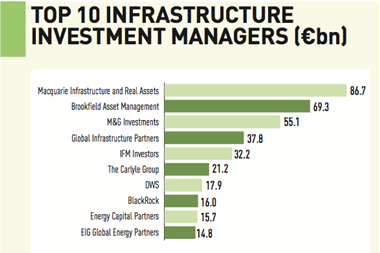Major UK investors believe infrastructure investment is being hindered by political interference and want to see the government’s National Infrastructure Commission given statutory independence.
Research by law firm DLA Piper has revealed 84% of UK investors with more than £1bn (€1.13bn) invested in infrastructure believe there is too much politicisation around infrastructure decision-making.
The report, UK Infrastructure: Defining the Future, which gathered the views of 56 investors, also found that more than 90% of investors would grant statutory independence to the National Infrastructure Commission – the body responsible for advising the government on infrastructure challenges.
More than half believe over-politicisation has a direct effect on the value of proposed projects, and 70% have been deterred from investing due to political concerns.
“While the report raises concerns over politicisation, UK infrastructure investors are broadly optimistic about the future, believing that net returns will increase over the next 10 years and that Brexit may provide the opportunity to improve regulation,” the research stated.
Around 66% of investors think net returns from investment in UK infrastructure will increase over the next 10 years, while 55% foresee more opportunities for investment over the coming decade compared to the previous one.
The research also showed 84% of investors expect their infrastructure to invest either the same amount or greater over the next five years.
DLA’s research also revealed that, despite targeted criticisms, investors are largely positive about UK infrastructure investment opportunities over the medium to long term.
Colin Wilson, a partner at DLA Piper, said: “There is a lot to be positive about in this report. Long-term optimism around UK infrastructure investment is a vote of confidence in the UK economy and its prospects after Brexit.
“However, investors believe that infrastructure projects are getting bogged down by political wrangling in Westminster and there is a strong sense that major infrastructure projects are too often treated as a political football.”
It makes sense to grant statutory independence to the National Infrastructure Commission, Wilson said, adding that this would help expedite projects and reassure investors that projects are less likely to be scrapped or substantially altered during the development cycle.
“It is clear also that, were the government to assume greater completion risk, it would act as a shot in the arm for investment, as it would help to de-risk portfolios and unlock further funds,” he said.
DLA’s research is based on a survey of UK-based investors with a minimum of £1bn invested directly in UK or global infrastructure.


















